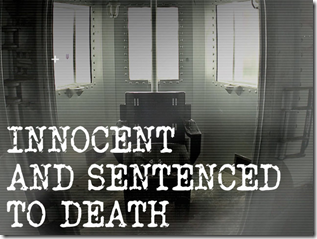Will Saletan lists six reasons why support for capital punishment is evaporating in the United States.
All six are perfectly valid, and I actually agree with all of them, but really, there’s only one that matters:
Innocence.
Since 1973, 144 death row inmates have been exonerated of their crimes.
It’s impossible to think that the our government has not executed innocent people.

As a person who was arrested and tried for a crime he did not commit, I understand the how easily an innocent person can be accused of a crime and how easy it is to be wrongfully convicted.
In my case, the judge said, “I think you’re probably guilty, but there isn’t enough evidence to convict you. I hope you realize how close you came to going to prison.”
The arrest and trial, which took almost two years from beginning to end, changed my life forever. Had I gone to prison, I can’t imagine where I would be today.
I will never understand how supporters of the death penalty are able to ignore the dangers of executing an innocent man or woman. In the past 41 years, more than three people per year on average have been released from death row after proving their innocence.
These are statistics that cannot be ignored. And yet they are. Even with capital punishment rapidly losing support in this country and executions on the decline, more than 50% of respondents to a recent Gallup poll expressed support for the death penalty.
I suspect that their opinions on the matter would change if they were arrested for a crime they did not commit.
Faced with the evidence that this is happening, these people are unmoved. I have to assume it is the result of one of two things:
- An inability to empathize with people in positions different than their own
- A failure of imagination. They are simply unable to envision themselves or a loved one in a situation that they know is routinely taking place in this country.
Either way, it’s ridiculous. We need to end capital punishment (as most Western nations already have) because we cannot be a nation that accidentally, unintentionally execute innocent people.






